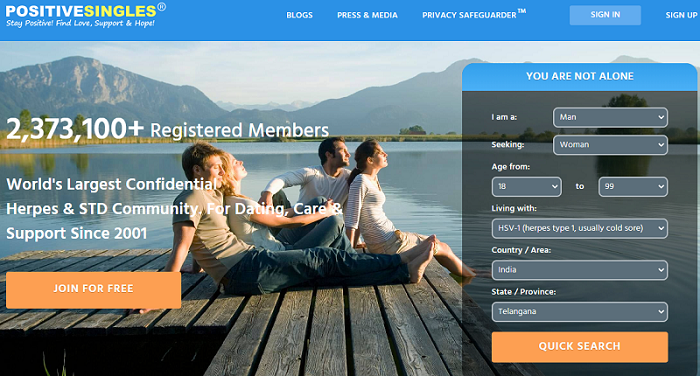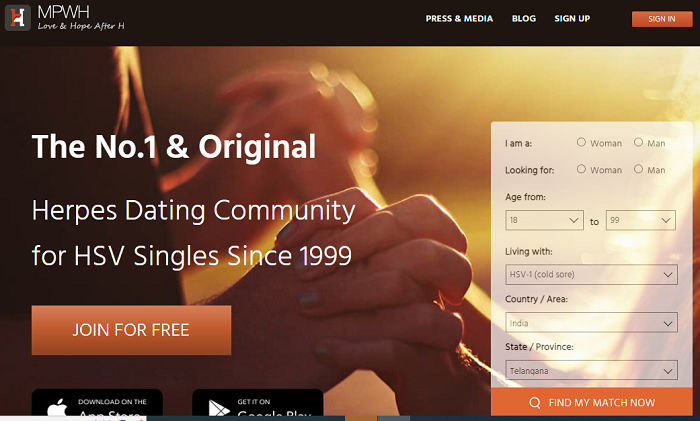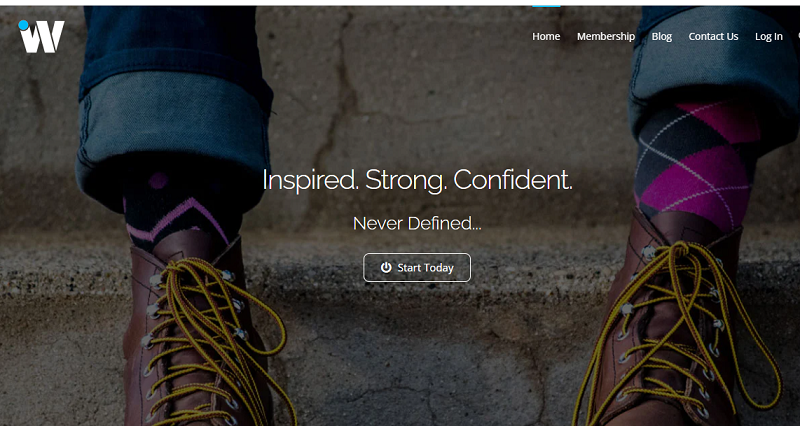Herpes is a common viral infection affecting millions worldwide, including many individuals in North Carolina. In North Carolina, individuals diagnosed with herpes often encounter unique obstacles and uncertainties. However, finding solace and support through herpes support groups can profoundly affect their lives.
North Carolina, like many other regions, is not immune to the emotional challenges posed by herpes. Individuals across the state may struggle to cope with the psychological and social implications of living with herpes. In a society where sexual health topics are often stigmatized, finding understanding, empathy, and support can be daunting.
This article sheds light on the importance of support groups for individuals living with herpes in North Carolina. It recognises the emotional impact of a herpes diagnosis and the specific challenges the state faces.
Comprehensive North Carolina Herpes Dating Sites List
Below is a comprehensive list of herpes dating sites catering to individuals in North Carolina. This list includes both free and paid platforms, along with brief descriptions, unique features, user demographics, and, if available, success rates:
Positivesingles 

PositiveSingles is a paid herpes dating site that stands as a leader in the industry. It has gained a reputation for providing a secure and supportive community for individuals with herpes in North Carolina. Here are the key features and characteristics of PositiveSingles:
PositiveSingles is designed to cater specifically to individuals with herpes, offering them a platform to connect, interact, and build relationships with others who understand their experiences. It fosters a sense of community and eliminates the stigma associated with herpes.
PositiveSingles has a track record of helping many individuals in North Carolina find meaningful connections and long-term relationships. While the exact success rate may vary, the site has successfully provided a platform where people with herpes can meet and form strong bonds with others who share similar experiences.
It’s important to note that PositiveSingles requires a paid membership to access its full range of features and services. Users can expect a supportive and understanding environment that prioritizes privacy and facilitates genuine connections.
MPWH (Meet People with Herpes) 

MPWH is designed to provide a platform for individuals with herpes in North Carolina to connect, communicate, and build relationships. It aims to create a supportive environment where people can find understanding and companionship despite their herpes diagnosis.
MPWH primarily focuses on individuals aged 18-45 with herpes in North Carolina. By targeting this specific demographic, the site aims to provide a community that understands the unique challenges and experiences of individuals in this age range.
It’s important to note that MPWH operates as a paid dating site, requiring a membership fee to access its full features and services. Users can expect a user-friendly interface, an active community, and a platform that fosters understanding and support among individuals living with herpes in North Carolina.
HWerks

HWerks is a paid herpes dating site that caters explicitly to North Carolina individuals, aiming to foster genuine connections and relationships. Here are the key features and characteristics of HWerks
HWerks attracts users of various ages in North Carolina seeking friendships, dating, and long-term relationships within the herpes community. The site caters to a diverse user base, allowing individuals from different backgrounds and age groups to connect and form meaningful connections.
Please note that HWerks operates as a paid dating site, so a membership fee is required to access its full features and services. Users can expect a platform that prioritizes genuine connections, supports user privacy, and provides opportunities for real-life interactions within the herpes community in North Carolina.
North Carolina Herpes Support Groups in Raleigh and Charlotte
Living with herpes can be challenging, but fortunately, there are herpes support groups available in both Raleigh and Charlotte, North Carolina, where individuals can find understanding, guidance, and connection. Here are some notable support groups in these cities:
-
Raleigh Herpes Support Group:
The Raleigh Herpes Support Group is an active community that holds regular meetings in Raleigh and the surrounding areas. These meetings provide a safe and confidential space for individuals to share their experiences, ask questions, and receive emotional support. The group aims to create an inclusive environment where members can find solace, gain knowledge, and connect with others who understand their journey.
The Raleigh Herpes Support Group also recognizes the importance of education in empowering individuals to make informed decisions. Educational sessions cover various aspects of living with herpes, including transmission, treatment options, and strategies for emotional well-being. By sharing accurate information and dispelling common misconceptions, the group equips its members with the knowledge to manage their condition effectively.
-
Charlotte Herpes Support Group:
The Charlotte Herpes Support Group is a well-established organization that supports individuals in the Charlotte area. They hold regular meetings where participants can discuss various aspects of living with herpes, including disclosure, dating, and managing outbreaks. The group emphasizes education, empowerment, and fostering community among its members.
The Charlotte Herpes Support Group emphasizes empowerment and personal growth. Through educational materials, presentations, and guest speakers, members learn about the latest advancements in herpes management, treatment options, and strategies for maintaining overall well-being. By staying informed and up-to-date, individuals can take control of their health and make decisions that align with their specific needs.
Not Just COVID: North Carolina’s Hidden Battle with Rising STD Rates
2020 will forever be etched in our collective memory as the year when the COVID-19 pandemic swept across the globe, changing lives and healthcare systems. Yet, as the world focused on the novel coronavirus, another silent epidemic was lurking in the background – the rising rates of sexually transmitted diseases (STDs). Like many other states, North Carolina faced an alarming increase in STD cases during and beyond the pandemic. This article delves into North Carolina’s hidden battle against these often-overlooked diseases.
The COVID-19 Pandemic and Its Impact
The COVID-19 pandemic disrupted every aspect of our lives, and the healthcare system was no exception. Hospitals and clinics were overwhelmed, resources were stretched thin, and the primary focus shifted to addressing the immediate threat of the virus. Routine healthcare services, including STD testing and prevention, took a backseat. While the pandemic presented challenges for healthcare providers, it also created a fertile ground for spreading STDs.
Interrupted Testing and Diagnosis
One of the most significant consequences of the pandemic on STDs was the interruption of testing and diagnosis. With healthcare facilities overwhelmed by COVID-19 cases, routine STD testing was postponed or cancelled. People were hesitant to visit healthcare settings for fear of exposure to the virus, and many sexual health clinics reduced their services or closed temporarily.
Altered Sexual Behavior
The pandemic brought about significant changes in sexual behaviour: lockdowns and social distancing measures limited social interactions and access to traditional venues for meeting potential partners. As a result, some individuals turned to online dating and risky sexual behaviours, often without the guidance of proper sexual health education.
The Numbers Speak: Rising STD Rates in North Carolina
The impact of the pandemic on STD rates in North Carolina is stark. According to the state’s Department of Health and Human Services, the reported cases of STDs surged during and after the pandemic. Let’s delve into the numbers:
Total STD Cases: 127,813
North Carolina reported a staggering 127,813 total cases of STDs, a significant increase from previous years. This total includes cases of chlamydia, gonorrhoea, syphilis, and HIV.
Chlamydia Cases: 64,640
Chlamydia, one of the most common bacterial STDs, saw a substantial increase in cases. With 64,640 reported cases, it’s evident that this disease remains a significant public health concern.
Gonorrhea Cases: 28,258
Gonorrhea, another bacterial STD, also saw a concerning rise in cases, with 28,258 reported instances. This trend indicates the challenges in containing the spread of these diseases during the pandemic.
Syphilis Cases: 1,353
Although syphilis is less common than chlamydia and gonorrhoea, it’s notable that there were 1,353 reported cases. If left untreated, this infectious disease can lead to severe health complications.
HIV Cases: 33,562
HIV, the virus that causes AIDS, remained a significant concern, with 33,562 reported cases. While not an STD, it is traditionally associated with sexual transmission.
Conclusion
Finding solace and support in North Carolina herpes support groups is crucial. These groups can profoundly impact emotional well-being and enhance the overall quality of life for individuals with herpes. Support groups offer a safe space for connection. People can connect with others who understand their experiences and share valuable insights and information. These groups provide much-needed support.
In conclusion, they are embracing the support and resources available in North Carolina herpes support groups. Individuals can empower themselves, improve their emotional well-being, and find a sense of belonging within a community that understands their journey. Remember, you are not alone; a supportive network is ready to embrace you with open arms.






